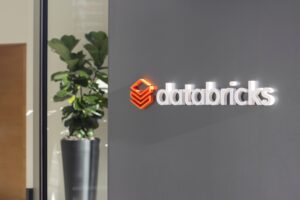
Databricks Acquires AI-Driven BladeBridge to Simplify Data Migrations

Source: Shutterstock
Databricks has expanded its portfolio with the acquisition of BladeBridge, a startup specializing in enterprise data warehouse migration solutions. The acquisition aims to enable businesses to easily transition from over 20 data warehouses, including Amazon Redshift, Snowflake, and Teradata, to Databricks SQL.
The San Francisco-based big data company plans to use the acquisition to integrate BladeBridge technology with its own platform, adding AI-powered ETL capabilities to simplify and accelerate enterprise data warehouse migrations. The financial terms of the transaction have not been disclosed.
A key advantage of the BladeBridge platform is that, unlike traditional migration tools, it uses Large Language Models (LLMs) to automatically perform code assessment before converting. Optimizing this process will enable faster and more efficient data migration into Databricks SQL, the vendor’s serverless data warehouse.
Organizations are rapidly modernizing legacy data warehouses to adopt Databricks SQL. In the past year, Databricks SQL generated revenue grew more than 150%, surging past the $600 million run rate. Databricks has shared that its overall revenue is on track to exceed a $3 billion run rate.
Ali Ghodsi, Co-founder and CEO of Databricks, believes that the rapid growth of Databricks SQL underscores its transformative impact on the data warehousing landscape. He stated, “Databricks SQL is the fastest-growing data warehouse on the market. Over ten thousand organizations have chosen Databricks SQL thanks to its price performance and AI innovations.”
“As more and more companies choose Databricks as the foundation for an open, flexible data architecture, we want to make it easier than ever to move from legacy data warehouses to the Data Intelligence Platform. By joining forces with the BladeBridge team, we can help every organization accelerate their move to Databricks with significantly lower migration cost and effort.”
BladeBridge has built four tools to simplify the process of moving data. This includes an Analyzer, a Converter, a Data Recon module, and a Studio. The Analyzr examines the current database, testing queries on both the old system and Databricks. It creates a detailed report on how complex the migration will be and highlights any issues that need to be addressed.
After the analysis is complete, the Converter automatically changes the data from its original format into one that works with Databricks SQL. According to BladeBridge, the platform can automatically adjust its settings if any part of the conversion fails, and it will keep retrying until the conversion is successful.
The Data Recon feature verifies that the data was migrated accurately by checking for any inconsistencies between the source and new data sets. The Studio tool is used to simplify the onboarding of data automating the generation of data transformation assets.
“At BladeBridge, we set out to solve frustrating challenges for companies looking to modernize their data stack, and today we’ve helped hundreds of organizations successfully migrate to cloud data platforms,” said Simon Eligulashvili, Co-founder and Executive Vice President of BladeBridge.
“We are thrilled to join the Databricks team to continue our mission — to help companies reach their data modernization goals — faster and at a far greater scale.”
In the last two years, Databricks has made a series of strategic acquisitions to build its data and AI business. In July 2023, Databricks shocked the big data world by acquiring MosaicML for $1.3 billion. With just $1 million in revenue by MosaicML at the end of 2022, industry observers speculated that Databricks overpaid.
In March last year, Databricks also acquired startup Lilac AI, which sells tools for managing the unstructured datasets that feed AI models. Then later last year, Databricks nabbed Tabular, the company behind Apache Iceberg. The deal was valued at more than $1 billion, Databricks confirmed to BigDataWire. The acquisition was aimed at addressing incompatibility issues between Iceberg and Databricks’ own Delta format.
With $15 billion in new funding last month and a $5.25 billion credit facility, Databricks is eager to explore new avenues for boosting its revenue. The company plans to invest capital toward new AI products, acquisitions, and expansion of its international go-to-market operations.
The acquisition of BladeBridge not only makes it easier for customers to migrate their data, it also reflects the evolution of Databricks, which started as a platform to simplify big data processing and has since evolved into a comprehensive data intelligence platform.
It also signals a more aggressive approach by Databricks to target customers of rival vendors. BladeBridge is more known for data migration from outdated and legacy systems to modern alternatives. It remains to be seen whether customers would use the platform to migrate from modern data platforms, such as Snowflake to Databricks.
Related Items
AI Agent Claims 80% Reduction in Time to Complete Data Tasks
Avoid the Hidden Challenges of Data Migration
The Spark-to-Ray Migration That Will Save Amazon $100M+ Per Year





























